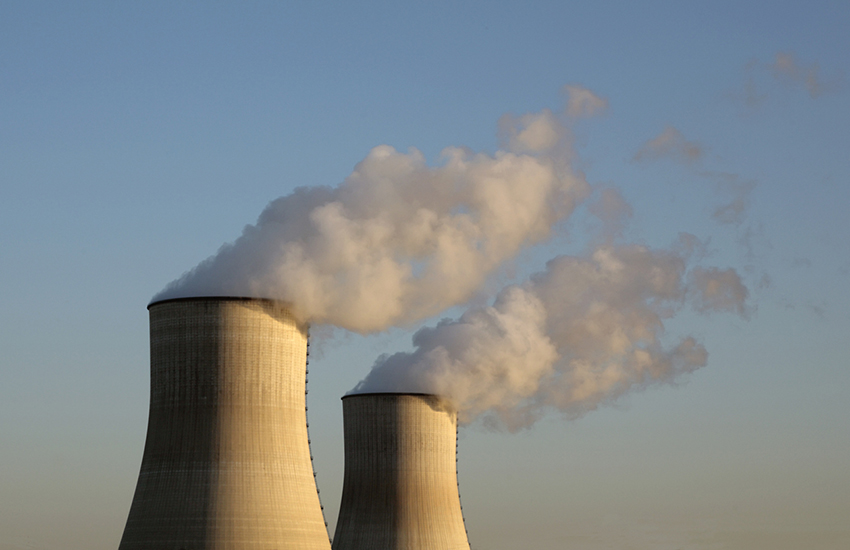On June 18, the U.S. Supreme Court issued a 6–3 decision in Nuclear Regulatory Commission v. Texas, 605 U.S. ___ (2025), authored by Justice Kavanaugh with Justices Gorsuch, Thomas, and Alito dissenting.
The case concerned the U.S. Nuclear Regulatory Commission’s (NRC) approval of a 40-year license for Interim Storage Partners (ISP) to store spent nuclear fuel at a private facility in Andrews County, Texas. Texas and Fasken Land and Minerals Ltd. challenged the license, arguing it violated the Atomic Energy Act (AEA) and the Nuclear Waste Policy Act (NWPA), which they claimed restrict interim storage to reactor sites or federally owned facilities.
The court addressed two key questions: (1) whether non-parties to an agency proceeding may seek judicial review under the Hobbs Act if they allege the agency exceeded its authority, and (2) whether federal law permits the NRC to license private off-site storage of nuclear fuel. Reversing the U.S. Court of Appeals for the Fifth Circuit, the court held that neither Texas nor Fasken were parties to the Commission’s licensing proceeding, stating that “Entities who were not parties to a Nuclear Regulatory Commission’s licensing proceeding are not entitled to obtain judicial review of the Commission’s licensing decision under the Hobbs Act.”
The regulation of nuclear energy in the United States began with the Atomic Energy Act of 1954, which authorized private commercial nuclear power and established the NRC to oversee licensing and safety. Today, nuclear power supplies nearly 20 percent of the nation’s electricity, while also generating spent nuclear fuel, a hazardous byproduct that must be securely stored. Most of the country’s 50-plus nuclear plants currently store this waste on-site in pools or casks, requiring significant space and safety protocols.
To address this challenge, a licensing process was developed, governed by statutory and regulatory criteria. This process includes opportunities for public intervention under 42 U.S.C. §2239, which allows individuals to participate if they can demonstrate a material legal or factual dispute. In 1980, the NRC issued regulations permitting private facilities to store spent fuel either on-site or off-site, with renewable 40-year licenses. Congress later passed the Nuclear Waste Policy Act of 1982, directing the Department of Energy to develop a permanent geologic repository, but it did not revoke the NRC’s authority to license private interim storage.
Judicial review of NRC licensing decisions is available under the Hobbs Act, which generally allows any “party aggrieved” by an NRC licensing order to petition for review within 60 days of a final order. In this case, the court interpreted “party” narrowly, relying on the AEA’s provision that only license applicants or individuals who successfully intervene in NRC proceedings qualify as parties. Because Texas did not seek intervention and Fasken’s petition to intervene was denied and upheld by the D.C. Circuit, neither was considered a party. The court rejected arguments that submitting comments or attempting to intervene was sufficient to confer party status. It also dismissed the alternative argument that Texas and Fasken could challenge the NRC’s action as ultra vires, reaffirming that such review is a narrow exception unavailable when a statutory scheme like the Hobbs Act provides an adequate path for judicial review. As a result, the court reversed the Fifth Circuit’s decision and remanded with instructions to dismiss the petitions for review.
Because the court resolved the case on procedural grounds, it declined to substantively address whether the NRC has the authority to license private companies to store nuclear waste off-site. Nonetheless, it offered subtle hints in dicta. The court noted that for nearly five decades, the NRC has interpreted the Atomic Energy Act of 1954 as authorizing private off-site storage of spent nuclear fuel, a view affirmed by the Supreme Court in 1983 and multiple Courts of Appeals.
In 1980, the NRC formalized this interpretation through regulations establishing licensing procedures for both on-site and off-site storage, clarifying that these rules codified existing practices rather than asserting new powers. The 1982 Nuclear Waste Policy Act did not revoke this authority; instead, it preserved the existing legal framework. The court also observed that neither Texas nor Fasken challenged the NRC’s statutory authority during the licensing process. While it refrained from ruling on the merits due to the threshold issue of judicial reviewability, the court emphasized that the dissent’s portrayal of the NRC as acting unlawfully contradicts decades of consistent legislative, regulatory, and judicial support.
In his dissent, Justice Gorsuch challenged the majority’s conclusion that Texas and Fasken lacked standing to seek judicial review, asserting that their active participation in the environmental review process made them “parties aggrieved” under the Hobbs Act. He further warned that allowing the NRC to define who qualifies for judicial review effectively enables the agency to shield its decisions from legal challenge, undermining accountability and public oversight.

